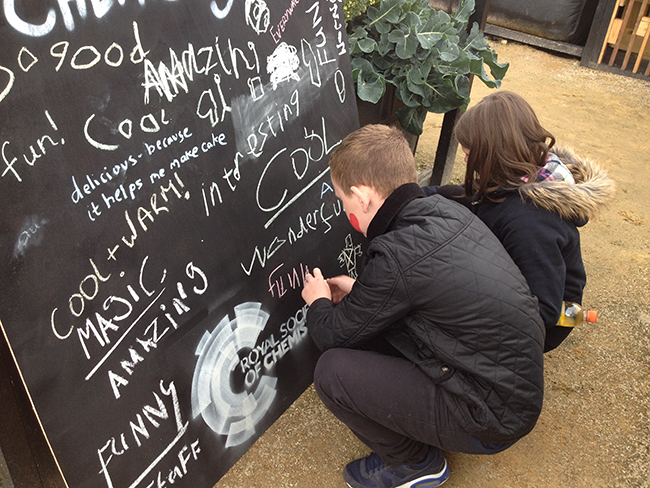A Shedload Story - Introduction
A Shedload of Science was an innovative art-science project led by Glasgow Science Festival and funded by the Royal Society of Chemistry, which brought chemistry to the streets of Glasgow and beyond, focusing on typically underserved areas. Throughout the summer of 2015, local community artists, practitioners, youth workers and scientists worked together with communities to deliver a unique programme of free events and workshops that explored chemistry in our everyday lives.
The touring shed popped up in some unusual places, including school playgrounds, community squares, gardens and even music festivals. Thousands of people of all ages took part. School children, community groups, festival revellers and the elderly rolled up their sleeves to experiment with lemon volcanoes, ‘fizzy rockets’ and colourful chromatography.
By connecting researchers to communities, A Shedload of Science enabled people to get ‘hands-on’ discovering the amazing chemistry which underpins our everyday life - and have fun along the way!
Festivals and Gala Days
The pop up shed toured grassroots music festivals and community gala days across North Glasgow and beyond bringing chemistry based fun to audiences that may not usually take part in science activities.
The first stop in the tour was Mugstock family friendly music festival which took place at Mugdock Country Park in Milngavie. Activities at Mugstock included an art workshop and chromatography experiements.
After this the Shed appeared at Doune the Rabbit Hole, another family friendly music festival in Stirling. Activities here included centrifugal art usuing bike wheels and salad spinners, and fizzy rockets.
The tour then continued to various gala days across Glasgow before wrapping up in the Back Garden at Possilpark ran by Concrete Garden.
People of all ages queued up to explore the chemistry of colour with our giant spin art machine, sweetie chromatography and fluorescent flies!
Some examples of the activities and experiments, including Lemon Volcano and Compost Chemistry, can be found in A Shedload of Experiments.

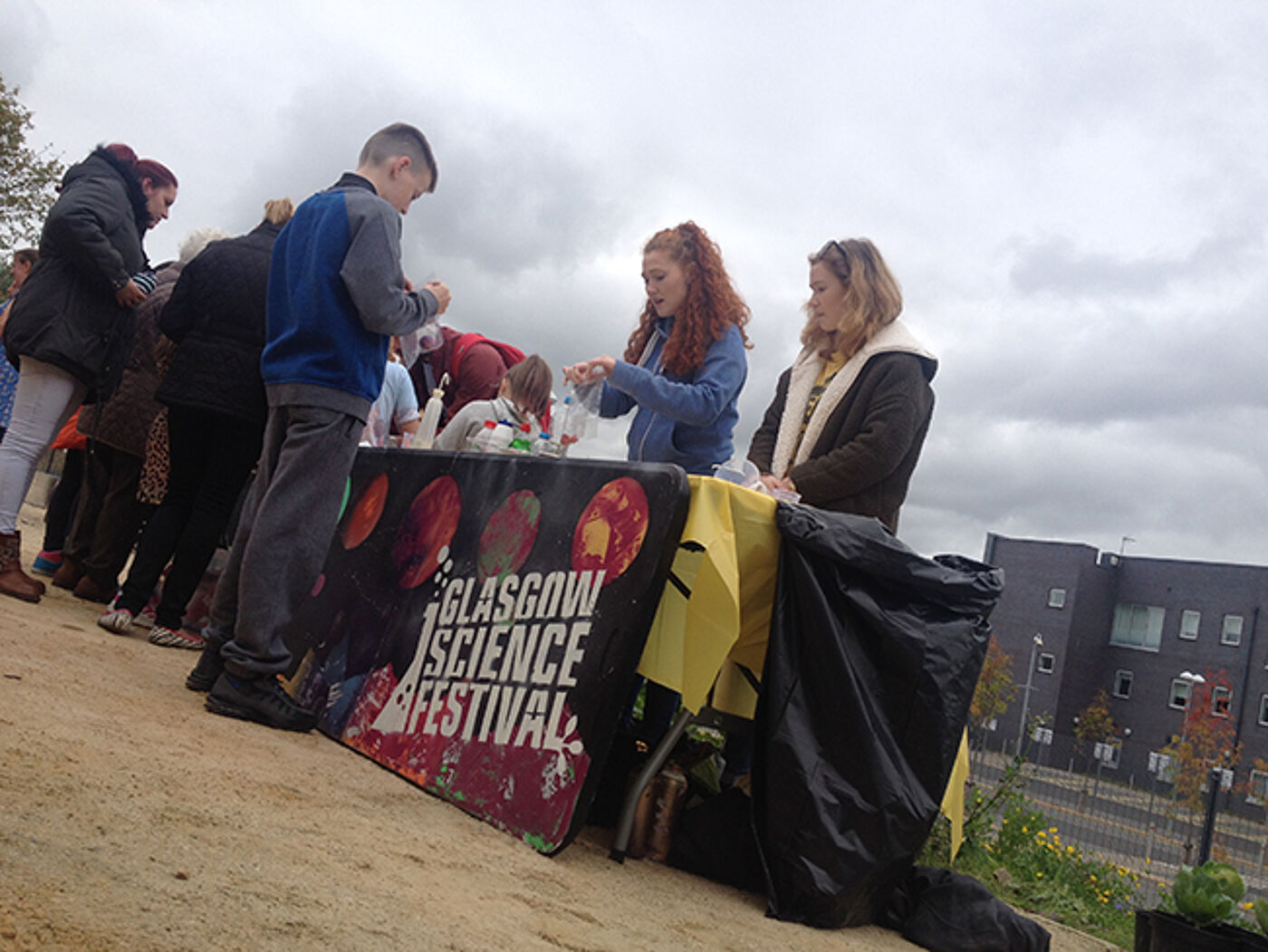
Back Garden, Possilpark
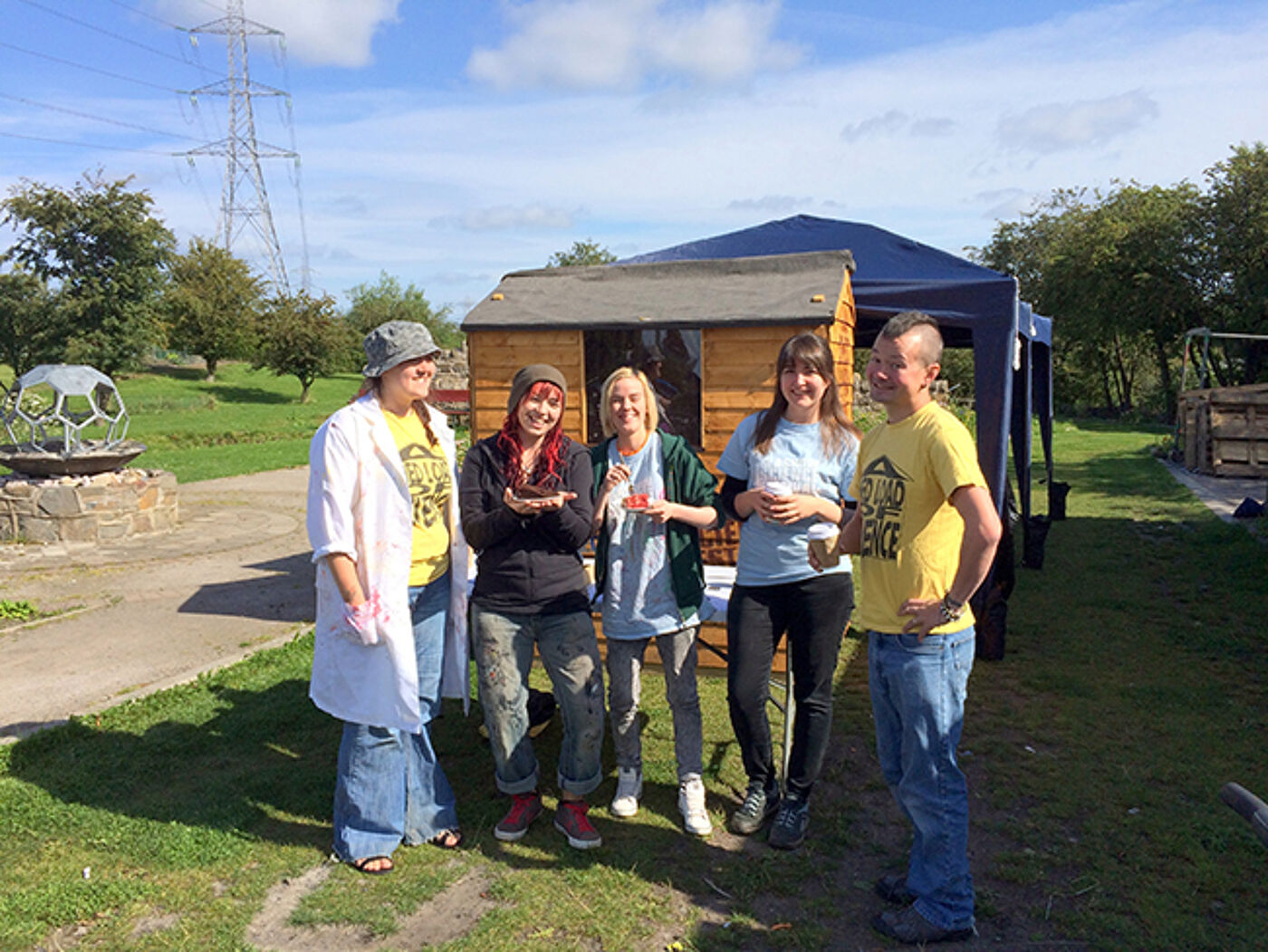
Lambhill Gala
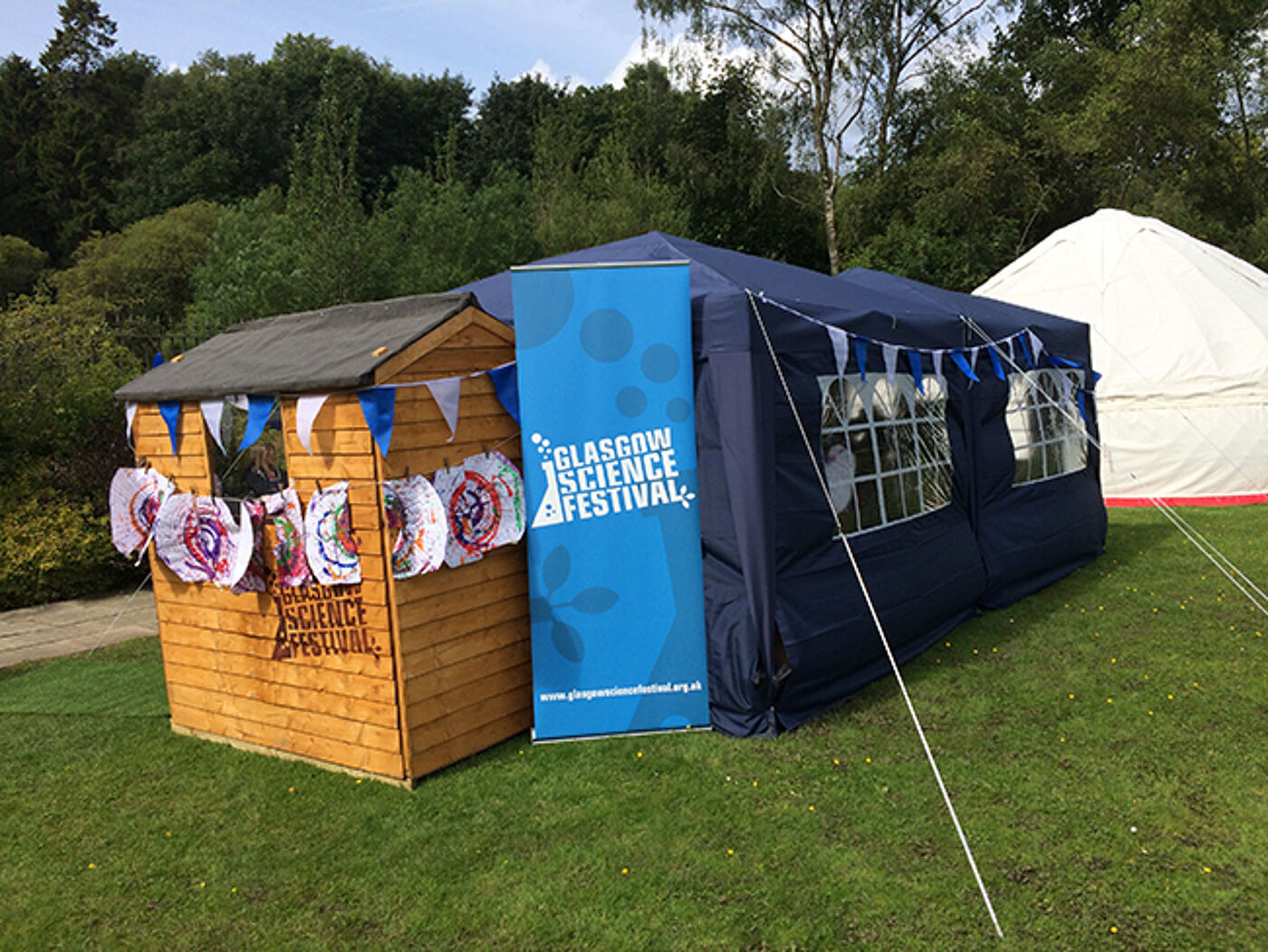
Mugstock Festival
School Playgrounds
For three weeks, The Shed popped up in the playgrounds of Benview, Keppoch and Cadder Primary schools. As a result, 1431 children aged 5-11 voluntarily spent their lunch breaks doing science!
Every day, under the guidance of our artists and scientists, children collected a new experiment to try, they built rockets and lemon volcanoes, made ‘spin-art’, added pH ‘scales’ to a giant fish and investigated strange materials like superabsorbent polymers and oobleck.
After each activity, children completed evaluation cards to test their knowledge and enjoyment and ‘posted’ them in our Shed Post Box. Completion of the activity and evaluation was rewarded with a special science festival ‘stamp’ of approval on the activity sheet.
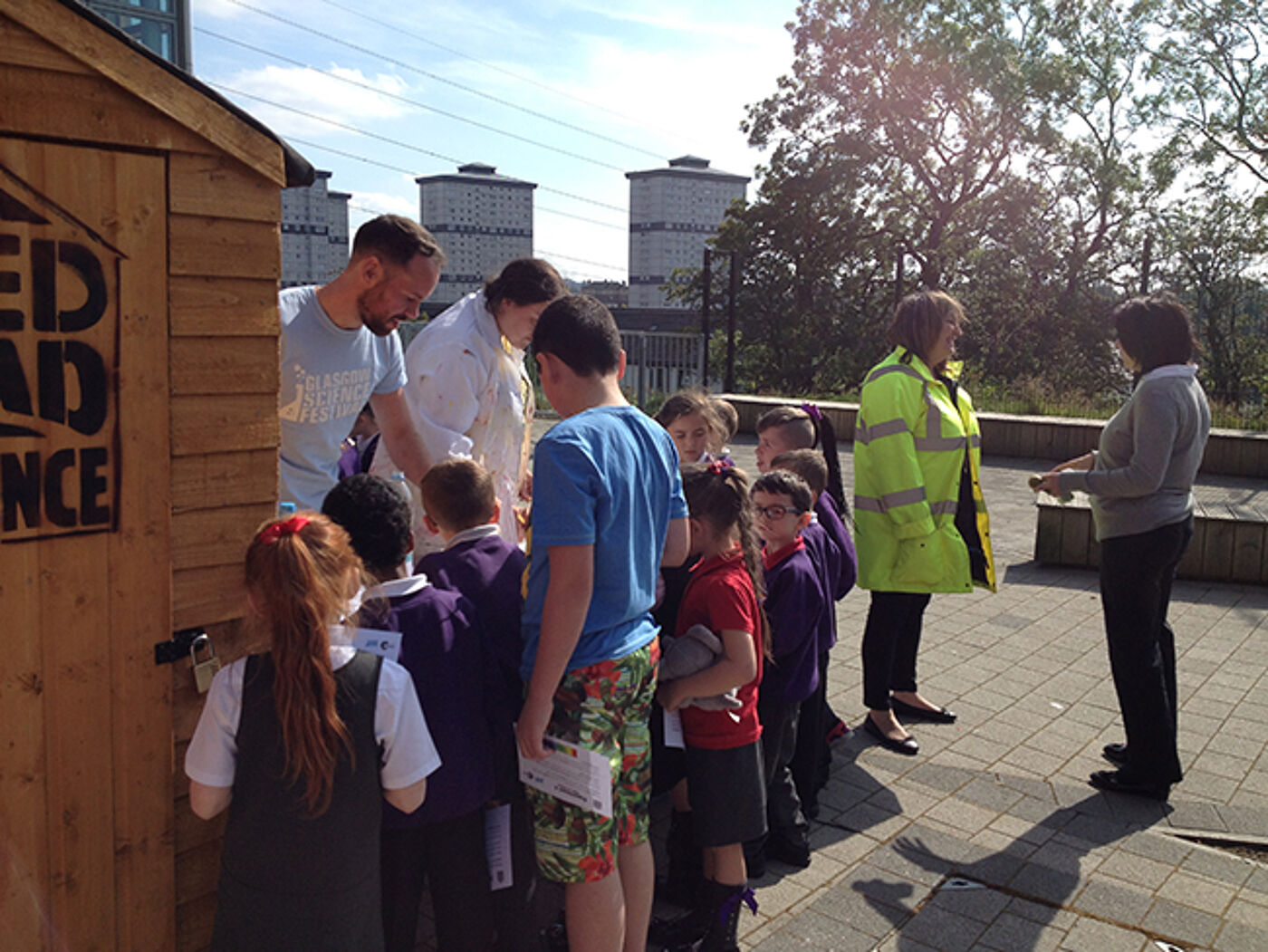
Playgrounds
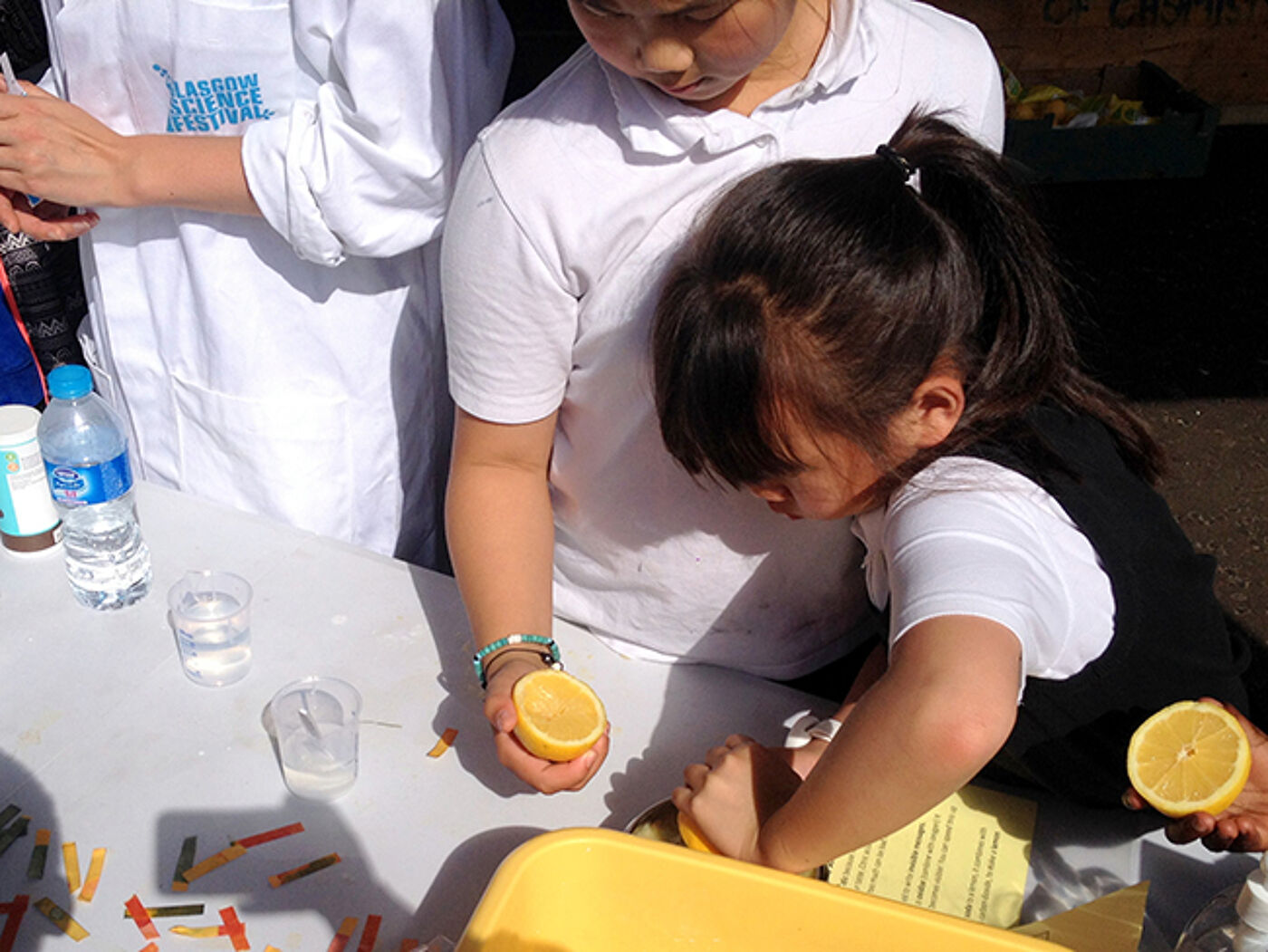
Lemon Volcanoes
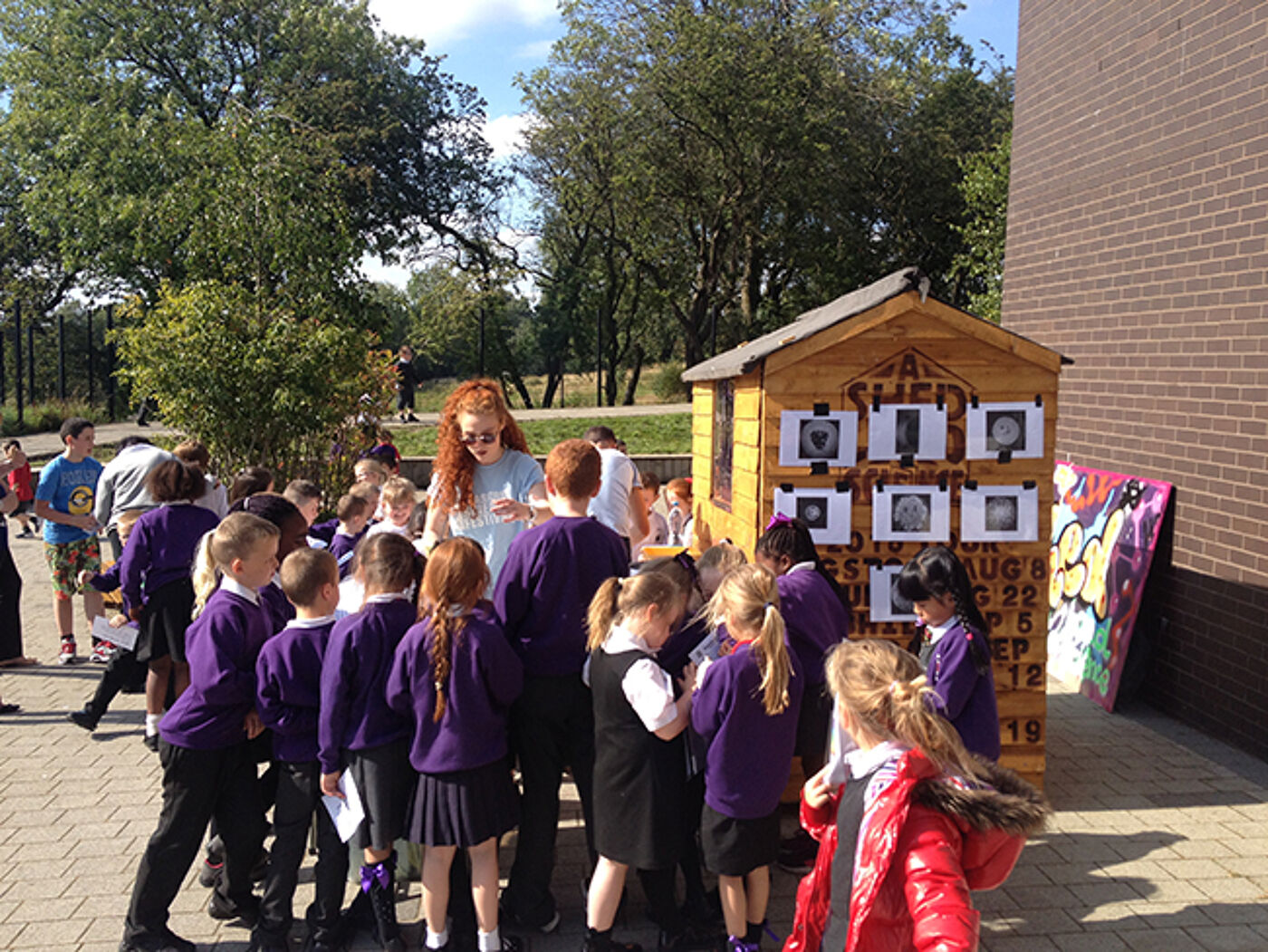
Queueing for the Shed
Local Communities
Community groups from across the North of Glasgow were teamed up with artists, youth workers and scientists who guided them through science based activities and showed the groups how chemistry underpins other sciences and their everyday lives.
By working closely with community groups over repeated sessions, we were able to build strong relationships with the groups and tailor our activities to their needs. For the harvest family day at the ‘Back Garden’ we developed a programme of activities linked to the garden, from DNA extraction with garden-grown fruit to the chemistry of composting.
The ‘Keep Creative’ art group focussed on the chemistry behind their art activities like photography, adding extra value to their meetings and bringing science topics to these new audiences. The chemistry of space was another popular theme which allowed us to demonstrate how chemistry relates to other sciences, from rocket fuel to searching for life on other planets.
A Shed Load of Science allowed us to work with community groups that had previously stopped operating due to funding cuts. This made working in North Glasgow of immediate benefit to the area.
One of the triumphs of the project was its ability to bring together the whole community, including local people of all ages, schools, special interest groups, local artists and the science community.

Possilpark
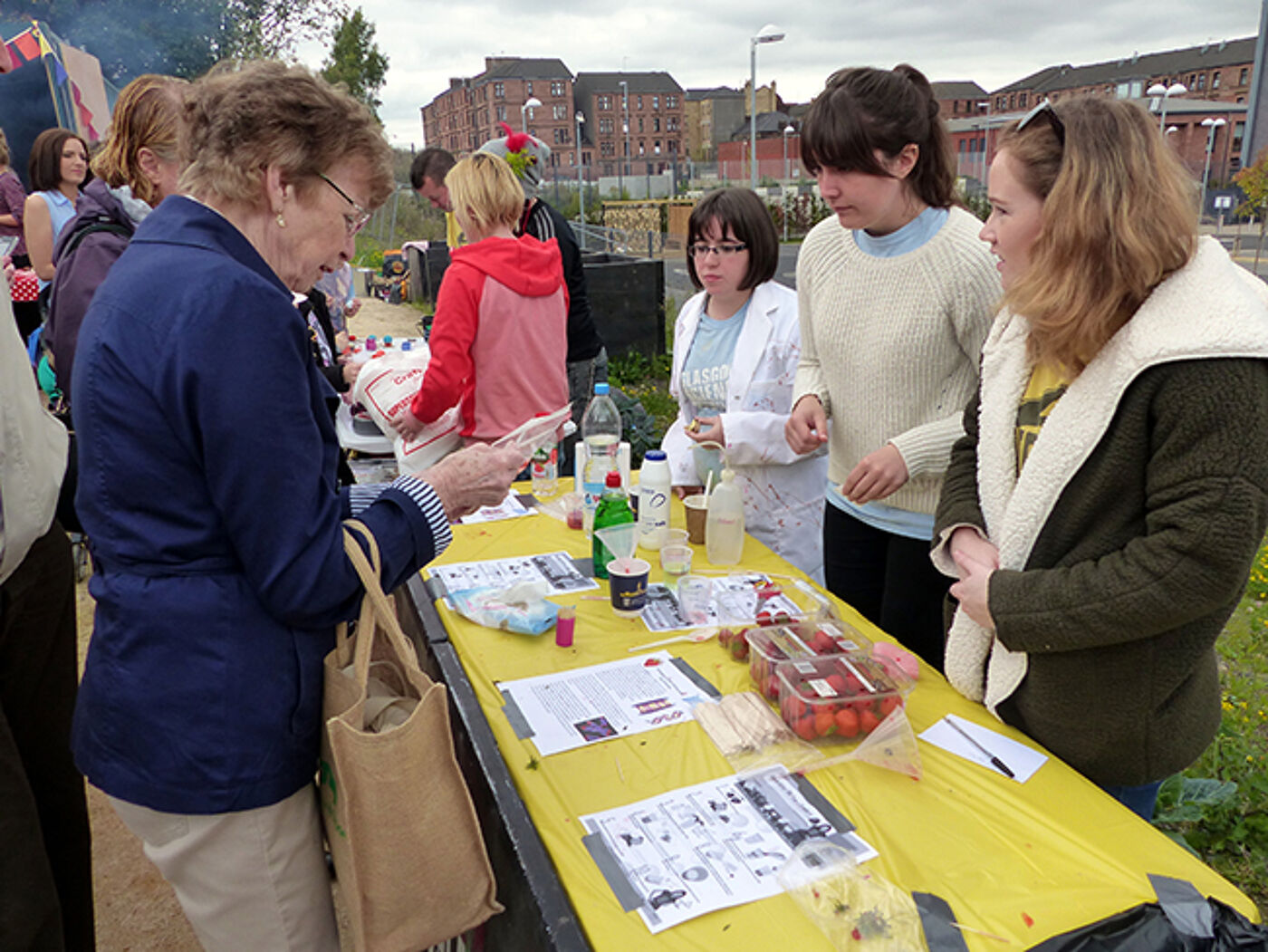
Strawberry DNA
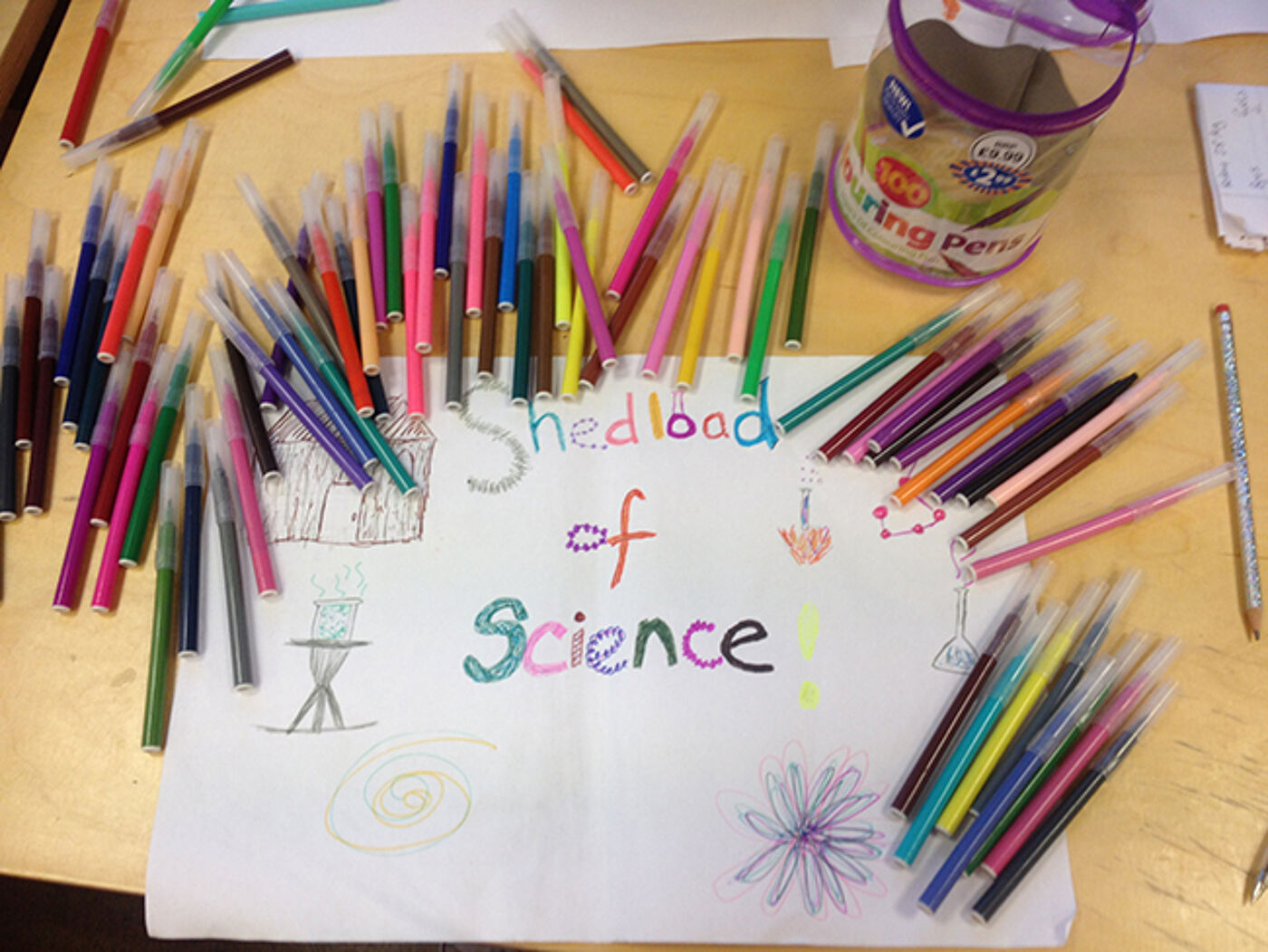
Community Art Groups
What people thought
By using a variety of evaluation methods, from ‘word clouds’ to questionnaires and post-it boards, we collected feedback from an incredibly diverse audience which included small children, school pupils, independent adults and community groups.
By bringing fun, hands-on chemistry to underserved places and people, A Shedload of Science was a unique and hugely rewarding project to deliver. The closure of community facilities in North Glasgow due to funding cuts made the project particularly valuable by enabling continued provision of free activities in the area.
Over 88% of school children said that they ‘really liked chemistry’, which was described by boys and girls equally as ‘amazing’, ‘fun’ and ‘interesting’. ‘You’re our science heroes!’ declared one group from Cadder Primary.
Paddy from Lambhill Stables praised our workshops for giving him ‘a purpose when I didn’t have a job’. ‘Really brilliant folk, making language and concepts accessible’ said one festival reveller at Doune the Rabbit Hole. ‘You’ve really made my day… it is so important for young people to learn about chemistry’ commented an elderly man at our Back Garden event.
The project didn’t just benefit our audiences: “My Shedload experience is the sole reason for my increased confidence. It has also increased my confidence at public speaking which I can apply to my PhD,” said Lynsey, one of our scientist contributors who had not participated in public engagement before. Sophie from Depot Arts, whose background lies in music and youth work said: “I thoroughly enjoyed meeting the team and working with both scientists and artists to create a fun, new learning activity for the community and schools.”
We would like to thank all the community artists, practitioners, youth workers and partners including The Concrete Garden team, and the University of Glasgow who helped make ‘A Shedload of Science’ a success.
Our sincere thanks to the Royal Society of Chemistry for funding this project.









